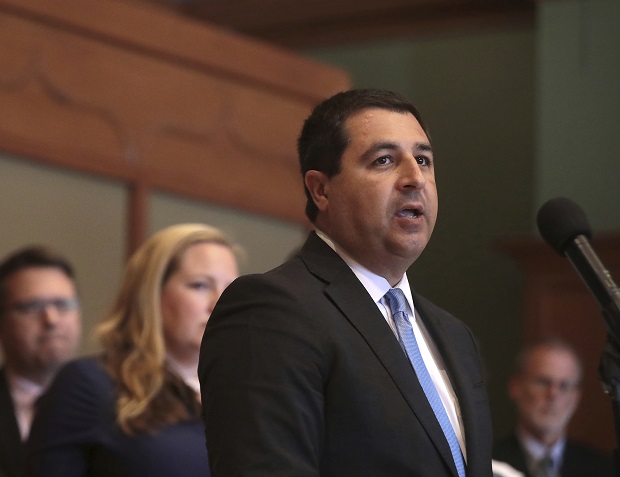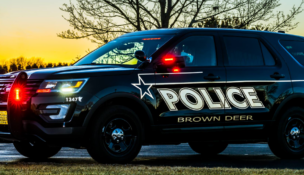Recording Case Analysis
By: dmc-admin//July 13, 2005//
The biggest question raised by the decision is when, not if, interrogations of adults will be required to be electronically recorded, as well as those of juveniles.
Although the court cited some studies suggesting that juveniles are more susceptible to interrogation than adults, see par. 26, n. 6, that part of the opinion does not even concern the per se rule, but only whether Jerrell’s confession was voluntary.
Every reason given by the court for adopting the per se rule for juvenile interrogations is equally applicable to adults: Alaska and Minnesota, the two states that require recording, do so for both adults and juveniles; "a recording requirement will provide courts with a more accurate an reliable record of [an adult’s] interrogation"; "an accurate record will reduce the number of disputes over Miranda and voluntariness issues for [adults]"; "recording will protect the individual interest of police officers wrongfully accused of improper tactics"; "a recording requirement will enhance law enforcement interrogations of [adults]"; and "such a rule will protect the rights of the accused."
The court noted that Miranda-Goodchild hearings are often credibility contests between law enforcements officials and the juvenile, "which law enforcement officials invariably win." The same is true with adult defendants.
Justice Prosser described the inevitability of electronic recording of all suspects well: "The majority outlines the advantages it sees in adopting a rule that custodial interrogation of a juvenile must be electronically recorded if the state seeks to use any statement by the juvenile in court. In doing so, it cites an American Bar Association resolution urging that such a rule apply to all custodial interrogations of crime suspects This formulation obviously includes adults. As Bob Dylan would put it, ‘You don’t need a weather man to know which way the wind blows.’ (cites omitted)(emphasis in original)."
It’s not clear, however, what an individual defense attorney representing an adult can do with the decision.
The court did not, as the Supreme Court of Alaska did in Stephan v. State, 711 P.2d 1156 (Alaska 1985), rest its decision on due process grounds, but instead exercised its supervisory authority, as Minnesota did, in State v. Scales, 518 N.W.2d 587 (Minn.1994). Any argument that a specific adult interrogation is unconstitutional, because it was not recorded, will find no support in this decision.
If an across-the-board recording requirement were to be adopted in an individual case, it will likely require what was presented in this case — an extremely long and coercive interrogation, an extremely long Miranda-Goodchild hearing, a statement by the trial judge that it wished he had a recording, an invitation from the court of appeals to require it, and a deluge of amicus curiae briefs.
A petition for adoption of a new Supreme Court Rule, rather than litigation, seems the more likely avenue for such a change.
| |
||
|
Related Links Related Article |
||
| |
||
Legislation, however, seems most likely.
The court wrote, "We are mindful that adopting the rule … will be met with some hesitation." However, the first response to the decision was a press release from State Representative Mark D. Gundrum (R-New Berlin), announcing that he will soon seek a law seeking funding of recording equipment and encouraging that all interrogations be recorded."
The decision also raises a number of smaller questions concerning practical application of the new rule, that will have to be answered on a case-by-case basis, many of which were asked by Justice Prosser in his concurrence/dissent: "What is ‘custodial interrogation’ under the rule? Are the exceptions to what is ‘custodial’ and what is ‘interrogation’ under [Miranda] still valid? How does the rule apply to a student’s interview in a school principal’s office? In an era of tiny portable recorders, when is electronic recording not ‘feasible’? Must the subject of interrogation be notified that his words will be recorded? May a subject waive recording? Does the ‘fruit of the poisonous tree’ doctrine apply to unrecorded statements?"
These questions will likely plague lower courts for years.
– David Ziemer
Click here for Main Story.
David Ziemer can be reached by email.
Legal News
- Steven Avery prosecutor Ken Kratz admits ‘mistakes were made’
- Colombian national extradited to Milwaukee faces International narcotics-trafficking conspiracy charge
- MPD: Milwaukee homicides down nearly 40 percent compared to last year
- EVERS: Republican lawmakers No-Show at special meeting to release statewide PFAS funding, stabilize healthcare access
- Wisconsin ICAC Task Force conference on Missing and Exploited Children highlights increase in sextortion cases
- More than 300 Wisconsin officers back in law enforcement after being fired or forced out
- Former Trump staffer who said to ‘fan the flame’ after 2020 loss hired to lead Wisconsin GOP
- Gov. Evers appoints David Casey to Serve as DOR Secretary
- Former Marine sentenced for Molotov Cocktail attack against Planned Parenthood Clinic
- ABA names 34th Annual Margaret Brent Women Lawyers of Achievement Awards honorees
- FBI launches criminal investigation into Key Bridge collapse
- Man charged in slaying after woman’s leg found at Milwaukee-area park
WLJ People
- Power 30 Personal Injury Attorneys – Russell Nicolet
- Power 30 Personal Injury Attorneys – Benjamin Nicolet
- Power 30 Personal Injury Attorneys – Dustin T. Woehl
- Power 30 Personal Injury Attorneys – Katherine Metzger
- Power 30 Personal Injury Attorneys – Joseph Ryan
- Power 30 Personal Injury Attorneys – James M. Ryan
- Power 30 Personal Injury Attorneys – Dana Wachs
- Power 30 Personal Injury Attorneys – Mark L. Thomsen
- Power 30 Personal Injury Attorneys – Matthew Lein
- Power 30 Personal Injury Attorneys – Jeffrey A. Pitman
- Power 30 Personal Injury Attorneys – William Pemberton
- Power 30 Personal Injury Attorneys – Howard S. Sicula











